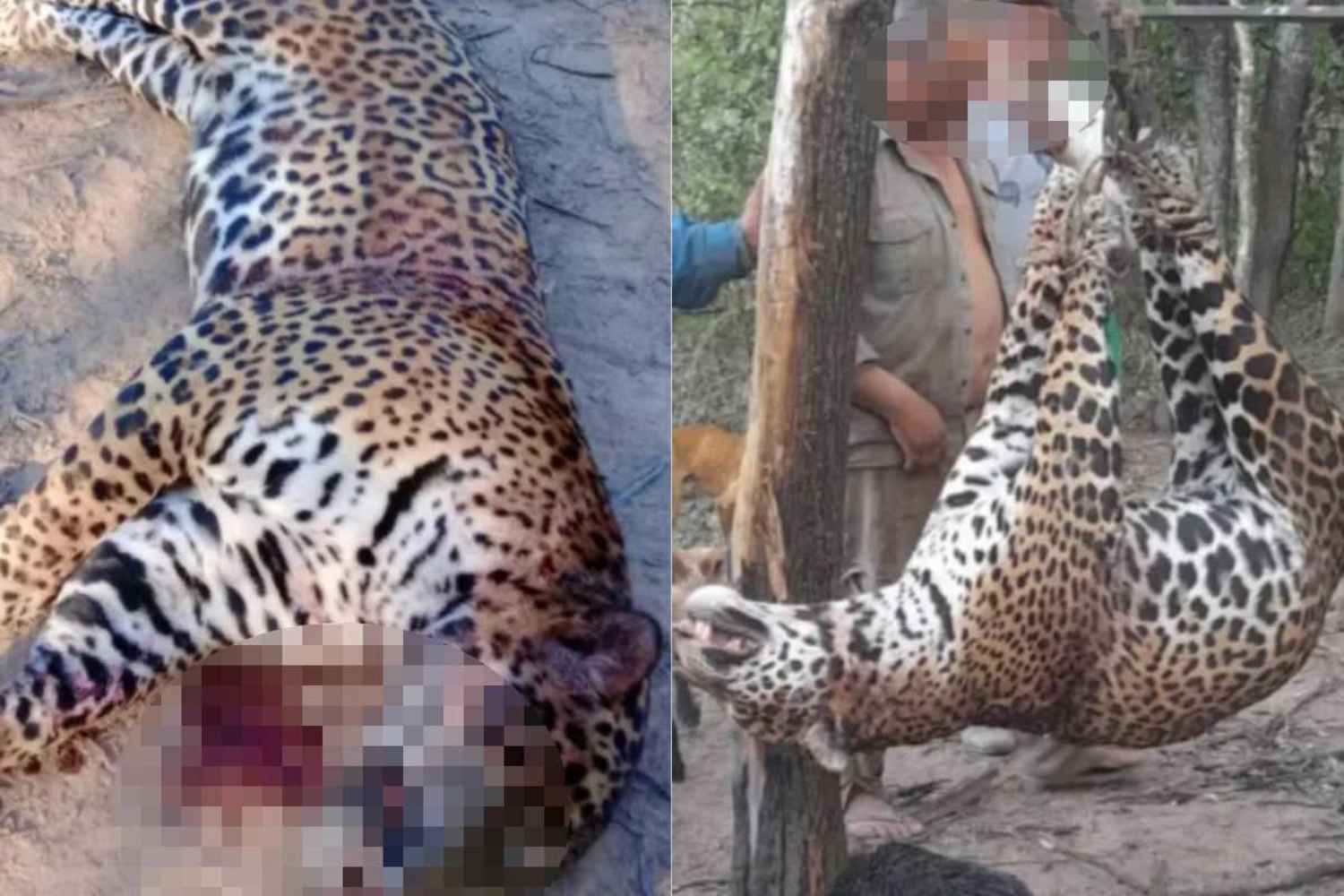Argentina’s first public poaching trial ends with prison sentences for jaguar killers, marking a historic precedent in protecting a critically endangered species.

@luismartinez_ambientalista/Instagram
For the first time in Argentina, a court has held a public, oral trial in a case of poaching that shocked the country. In July 2024, four men killed a jaguar in the Estanislao del Campo region, later boasting about their crime through photos and videos posted on social media. The images—showing the skinned animal and its pelt stretched across a cloth—sparked outrage and triggered an immediate investigation.
A species on the brink
The jaguar, locally known as the yaguareté, has been a National Natural Monument since 2001 and enjoys legal protection. Yet its survival remains precarious. In Argentina, only about 250 individuals are left, with barely twenty in the Gran Chaco region. It is the largest feline in the Americas, and today it is classified as critically endangered by conservation bodies. Losing the jaguar would mean not just the disappearance of a symbol, but an irreversible blow to Argentina’s ecosystems and biodiversity.
The ruling and its symbolic weight
The trial ended on August 13, 2025, with a two-year prison sentence for the four defendants: Viterman Ponce de León, Walter Hugo Ponce de León, Claudio Hugo Cisneros, and Máximo Cisneros. Three of them will serve their sentences under house arrest with work permits, while one will go to prison. For Argentina’s justice system, this case sets a historic precedent, regarded as an important step in the fight against illegal hunting.
Environmental groups respond
The verdict was welcomed as a victory by environmental organizations, including Greenpeace Andino and Red Yaguareté, both of which had followed the case from the start. Hernán Giardini, coordinator of Greenpeace’s forest campaign, called it “a historic ruling on one of the main threats to the species: poaching. Now is the time to address deforestation as well, another major threat.”
This conviction serves not only as punishment for the offenders but also as a clear message: nature and its most vulnerable species are finally beginning to carry weight inside courtrooms.
Source: Greenpeace Argentina
